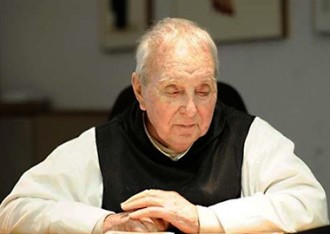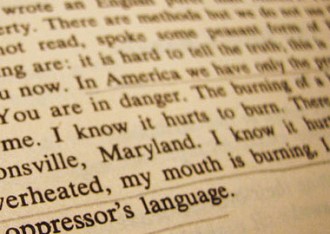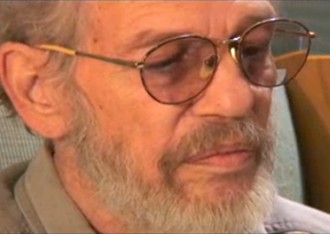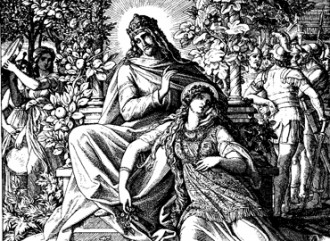“Give Me Your White, Your Rich… Yearning to Earn Fees”
In honor of the shameful refusal to accept Syrian refugees, a rewrite of the “Statue of Liberty” poem.
Read MoreIn honor of the shameful refusal to accept Syrian refugees, a rewrite of the “Statue of Liberty” poem.
Read More
“People always leaving just as other folks arrive.” That is the line that suddenly came to mind when I learned that Father Matthew Kelty left this world peacefully at noon on Friday last. This is a great loss to those of us newly, and not-so-newly, arrived, and I wanted to try to explain why I think this is so. This remarkable monk spent fifty off-and-on years at the Abbey of Gethsemani in Kentucky, where he was the last confessor that Thomas Merton ever had; and if that wasn’t enough to warrant further discussion, he was also a gay priest who came out in one of his most eloquent essays at the ripe old age of ninety. We will not soon see the likes of such monks again.
Read More
Rich’s approach to her religious identity was of a piece with her approach to every aspect of her identity. For Rich, any identity worth achieving involved struggle and resistance—be it national identity (“a patriot is one who wrestles for the / soul of her country / as she wrestles for her own being”), gender identity (“A thinking woman sleeps with monsters. / The beak that grips her, she becomes.”), or the committed poet’s identity (“She cannot teach the end of bonds; but she can refuse to justify, accord with, ignore their existence”).
Read More
There’s a 40-year interval between Stephen Levine’s previous book of poetry and his latest—that’s quite a span. Though his books of prose have found over a million readers, this newest book flies under the radar. Why? One is the still-marginal place of poetry in American culture. For book publishers, the “poetry marketplace” (a kind of oxymoron, since poetry operates largely outside the cash nexus), is largely fueled by writing programs in academia. True, Coleman Barks’ renditions of medieval Sufi poet Rumi captivated a national audience, for a spell. But America’s own living, devotional, mystic poets find a much smaller audience, and slip through the cracks of critical discourse.
Read More
Having abandoned its roots in art, the dehumanization of the world, and the metaphysical, environmentalism has made common cause with its natural enemies and arrived at a place where its holy grail is reducing carbon dioxide to 350 parts per million.
Read More
Drawing on sources as diverse as feminist theology, biblical criticism and Midrash, renowned poet Alicia Suskin Ostriker’s latest book of essays seeks to rescue the Bible from the clutches of narrow conservatism.
Read More